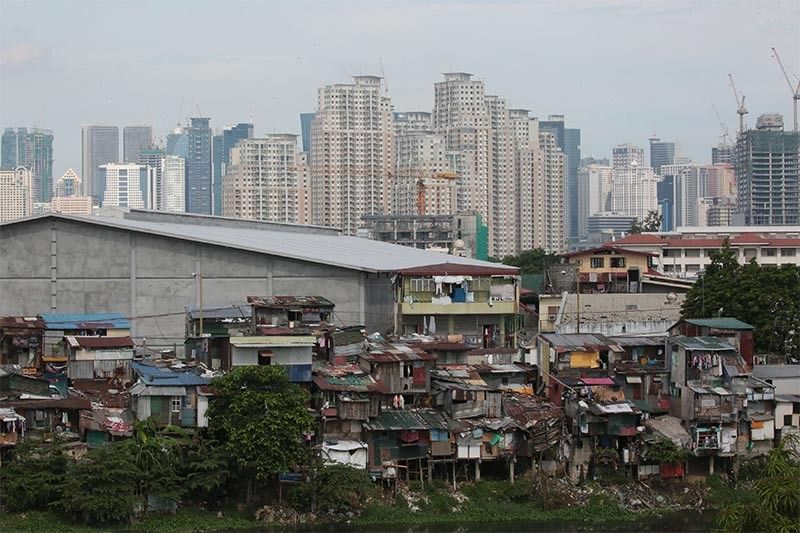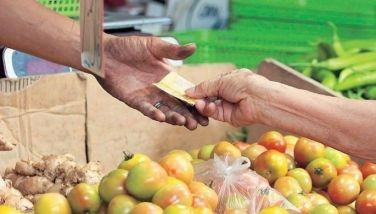'Duterte's SONA had no plans for the urban poor'

MANILA, Philippines — The urban poor are the hardest hit by the coronavirus pandemic in the Philippines, advocates say, and President Rodrigo Duterte's fifth State of the Nation Address expressed no plans to pull them from what advocates called the epicenter of the pandemic.
"Urban poor communities are in the epicenter of the crisis. The government must have clear policies, programs, and projects to help the poorest of the poor. Nothing of these did we hear from the SONA of the president,” housing advocate alliance Karapatan ang Tahanan said.
"The urban poor are hit the hardest by the pandemic not just by the virus itself, but by the underlying results of the lockdown which brought about losses of income and jobs, hunger, health and education insecurity, evictions and more than that is the vulnerability to human rights abuses," it also said.
At a webinar entitled “Karapatan sa Tahanan, Karapatan sa Paninirahan,” urban poor leaders sounded off on their frustration with the president's latest SONA, decrying the state of the urban poor months into the world's longest quarantine.
During the president's address, the poor were only mentioned thrice: first to say that "neither rich nor poor were exempt" from the virus, next to cite the poor families who benefitted from the Pantawid Pamilyang Pilipino Program, and later cite the money allotted but still not disbursed under the government's social amelioration program.
In a public speech mid-pandemic that was supposed to address the state of the nation, the president instead spent his time slamming political opponents, making false statements about Martial Law in Mindanao, expressed apprehension in asserting the country's legal victory in the West Philippine Sea, and called for reviving the death penalty by lethal injection, among others.
READ: In Metro Manila, fighting COVID-19 requires helping the poor—now | Told to stay home, Filipino poor go out to work absent government aid
Duterte pointed to other countries that he says "opened up too early too soon" and are now "suffering."
He said no nation on Earth was really prepared for COVID-19.
Alice Murphy, executive director of Urban Poor Associates, said: “Aside from the moratorium on demolition, we hope that the National Housing Authority (NHA) resettlement and socialized housing office would also extend its moratorium on amortization. It would be a relief for poor families who worry about eviction if they are unable to pay for the amortization."
"We also urge the government to adopt People’s Plans for the provision and construction of socialized housing and put this policy in the pipeline. We believe that giving people decent housing is one of the solutions for this pandemic,” she added.
The groups highlighted in their webinar that the job and economic crises that continue to make poor people suffer. As of April 2020, there were 7.3 million Filipinos who lost their jobs or an equivalent of 17.7% unemployment rate, the highest unemployment rate the country has experienced.
Surveys by the Social Weather Stations corroborate this and paint a picture of a country living under uncertainty as the global pandemic continues its onslaught: one found that hunger and pay cuts contribute largely to Filipinos' stress, while another found that quality of life in the country got worse for most Filipinos.
Jonjon Elago, president of urban poor alliance the ULAP Confederation said: “Urban poor workers, like myself are paying P1,200 for rapid testing, which is a requirement for us to be able to go to work. This is an additional burden for us who have suffered losing income during the three-month lockdown. What is worse is when you tested positive in the rapid testing, we have to quarantine for 14-days and have to pay again for another test afterwards."
"Some companies, if the result of the rapid test is positive, still require a person to undergo the swab test which is about P7,000. We cannot afford that. But since the only way for us to provide food for the family is to go back to work, we take the risk of borrowing money just to comply with the swab test. I hope the government would provide the means for us poor people to avail of testing with a shorter waiting period for the result,” he added.
'Military approach'
The groups also pointed to the government's approach in handling the pandemic, which they say only intimidates people on the ground.
READ: 'War' narrative in COVID-19 crisis fails to empower Filipinos, groups say | Public told to report neighbors with COVID-19 as cops prepare to go house-to-house
As it stands, police leadership has admitted to looking at intensified "discipline-based ordinances" and bans on loitering, drinking, and smoking as "tools" to clamp down on quarantine violators as the agency's focus shifts to the barangay level.
Lawmakers and groups across a multitude of sectors both local and international have already pointed out time and again that the Philippine government's militaristic response did little to empower citizens and actually dent the coronavirus pandemic.
In earlier interviews with Philstar.com, rights monitors Human Rights Watch and Karapatan said that the trends towards intensified enforcement on the barangay level leave the door open for more instances of police abuse in the wake of existing cases over the quarantine and the implementation of the Anti-Terror Bill.
While data from the task force indeed shows a significant drop in quarantine violations after special forces are deployed and police visibility was intensified, cases of police personnel violating protocols piled up quickly over Metro Manila's own enhanced community quarantine.
READ: Urban poor group casts fear over precedent set by Metro Manila cops after eviction attempt
"The government has been brutal in enforcing COVID-19 protocols in the urban poor communities. Instead of creating an environment, wherein the people would be encouraged to have themselves tested, the agents of the government have made them feel the opposite. We urge the government to change its military approach in handling the pandemic, since it intimidates the public,” said Karapatan ang Tahanan officer Vincent Eugenio.
The government's quarantine enforcement arm which includes the national police and the military is set to enact Oplan Kalinga, which seeks to find COVID-19 patients under home quarantine and transfer them to isolation facilities. Police Lt. Gen. Guillermo Eleazar, who heads the task force, said it would actually help families who would otherwise not be able to afford proper isolation for coronavirus patients. As of the health department's July 1 update, the government has 119 quarantine facilities taking in patients.
It is not clear if the program will include a house-to-house program as initially stated.
- Latest
- Trending



































